






Luke Compton News Writer
College Board is transitioning 28 of their AP tests to a digital format. This change follows the company’s switch to a digital SAT last year.
Sixteen of the AP tests will be fully digital and 12 will be hybrid.
“Some [AP tests] will have a digital portion and then they’ll have a portion where students will turn in their work for problems,” Dr. Iris Smith, Associate Principal for HR and Instructional Operations, said.
Despite the new tests, class curriculums will change minimally.
“I’m not going to make any changes to my books or anything like that, just my very specific test prep,” English teacher Ms. Johanna Abend said.
“Teachers will have practice exams that will exist in Bluebook, ” Dr. Smith said. “Then students have the digital experience before they take the real test in May.”
The response to this update has been varied.
“I don’t like digital testing,” junior Victor Uzquiano said. “It feels very different.”
“I don’t think it’s equitable for students because of different technology resources that they’ve used in the past,” Ms. Abend said.
Lucia Fuentes News Writer
Starting with the 2024-25 school year, the ACT will be the official state standardized test.
This past summer, The Illinois Board of Education’s contract with College Board expired. This allowed for a change from the SAT.
In order to choose between the two tests, the board weighed the pros and cons of each. After evaluating the costs of both, the ACT was selected.
When the SAT was required, many opted to take the ACT outside of school anyway.
“I took the ACT twice this past spring and the SAT one time,” senior Rosie O’Hara said. “I liked the ACT better because it tests critical thinking and problem-solving skills instead of only factual knowledge.”
One of the major differences between the two tests is that the ACT includes a science portion. Since implementing the ACT, Illinois high schools are no longer required to administer the 11th grade Illinois Science Assessment.
Additionally, students will switch from taking the PSAT to a PACT test. This will prepare them for the format and topics tested on the ACT.
With this announcement, some students are disappointed.
“We’ve been preparing to take the SAT the past two years,” junior Avery Oomen said. “This switch makes it hard to prepare in a shorter amount of time. I will still end up taking the SAT outside of school so that I can compare the scores and see which one is better.”
Bart Dabkowski News Writer
After attempting to switch to digital ID cards for the 2024-2025 school year, Maine South reversed the update. On Aug. 27, it was announced that security problems arose during the implementation.
School administrators were approached with the option of digital IDs by the new school photography company, HR Imaging.
“We figured, what’s the point of trying to waste all this plastic if most students would rather just use an image on their phone,” Mr. Michael Edwards, Associate Principal of Student Experiences, said. “Then, we can continue to do what we always do and save the environment a little bit.”
Digital IDs would have replaced the traditional ID cards printed out for students. Their purpose would be similar to Infinite Campus, an app used by many students to access their IDs. Physical IDs still would’ve been available at the request of the student.
After a rollout in late August, a student discovered a major security flaw that violated Illinois student privacy laws. The digital IDs were quickly deactivated a day later.
“A very, very smart student figured out that if they changed a couple of things that they were able to gain access to other student’s IDs,” Mr. Edwards said. “That violates your privacy rights as a student. We can’t use any online software that would expose the privacy of one student to another.”
This issue put an end to the digital ID attempt,

I SEE SOME
Physical ID cards are here to stay for the 2024-2025 school year. After initially moving to digital IDs, Maine South reversed that decision.
forcing the school to return to physical cards.
Although Infinite Campus remains a popular way for students to access their IDs, some students like having a physical option.
“I like digital IDs because of the convenience they have,” sophomore Giovanni Dragotta said. “I like having a physical card because I can use it when my phone doesn’t have a connection or is out of battery.”
Others were more skeptical of going fully digital for IDs in the first place.
“Trying to push us to just use digital IDs isn’t a good idea,” sophomore Ryan Whitlock said. “They’re not always reliable. I remember a few times last year when Infinite Campus was down and I couldn’t access my ID.”
Charlotte Chapman & Samara Lefler News Editors
Inorder to streamline athletic information to students, parents, and coaches, Maine South will be utilizing the new SnapMobile athletic application for the 2024-2025 school year.
“Since SnapMobile now owns our athletics website online, they also had this app created for the school,” Director of Athletics Mr. Matt Ryder said. Maine South often uses SnapRaise, a branch of the Snap company, to fundraise.
Prior to the creation of the mobile app, updated athletic information was spread out across numerous emails and websites.
“I’d get multiple calls and emails every year, just like, ‘Hey, Mr. Ryder, is the website updated?’” Mr. Ryder said. “Now, anytime we make schedule changes, we do it on Snap, and the schedule updates on the app immediately.”
Users are able to select teams to receive specialized notifications.
“You can make favorites and get notified about games and what’s going on,” senior Kara Chaplin said. “It’s a good way to stay connected.”
In addition to providing schedule information, the app has other features.
“Fans can just go to the app, click where is says
‘buy tickets’, and it takes them directly to our ticket webpage,” Mr. Ryder said.
This system cuts out many of the previous steps of buying tickets.
“Before you used to have to scan a QR code from an email, but now we have a one-stop shop for everything to do with our athletics program,” Mr. Ryder said.
Many have expressed appreciation for the convenience offered by the app.
“I had a couple people at our game say how they were excited to use the app,” Mr. Ryder said. “They had already bought their tickets through the app and said how easy and convenient it was.”
Students have also welcomed this change.
“I love the layout [of the app],” senior Sydney Cruz said. “I think it’s very easy to use the features, so that’s really nice.”
Many hope that the app will encourage more connection across the athletic department.
“I downloaded it because I thought it would be a great way to stay connected to the athletics here at Maine South,” Chaplin said.
Overall, many agree that this app was an improvement for athletic communication.
“I definitely think it was a good idea,” Cruz said. “It’s a great way to get all the athletics organized.”
Charlotte Chapman News Editor
After last year’s change in course order, the social science department has updated its curriculum and introduced new classes.
These modifications aim to improve students’ understanding of the world around them.
“Prior to these shifts, it was feasible for a student to go through Maine South and never study anything other than US history and government,” social science department chair Ms. Jenne Dehmlow said. “They would never study the world.”
Currently, the curriculum of required courses is being reevaluated.
“Both World and US History are in the middle of a curriculum redesign,” Ms. Dehmlow said. “The courses will have all of the same requirements of a standard world studies or world history course, but they are aligning with competencies that our teachers have designed with student input.”
Previously, students were not required to take a social science course freshman year. Now, they must take either AP World History or World Cultures. This change is designed to better prepare students for civic participation.
“The social science department was really thinking, ‘How are we preparing our students to vote or understand the world around them if they’re not getting a lens of the world in a global perspective?’” Ms. Dehmlow said.
After freshman year, there is more flexibility in course offerings.
“All of our AP and elective offerings are available sophomore, junior, and senior year,” Ms. Dehmlow said. “You can take them consecutively with any of the other graduation requirements.”

AP World History World Cultures
AP US History
US History
Economics
History of the Western World*
International Relations Law in American Society
Modern America after 1945*
Psychology
Sociology
We the People
AP US Government Civics and Government
AP Economics
AP European History*
AP Human Geography*
AP Psychology
New: AP African American Studies
New: Philosophy
*Courses did not receive enough student interest; no current sections being run.
The Social Science Department’s updated course list includes 13 elective offerings in addition to the required classes. This gives students the opportunity to explore many career interests.
Students are encouraged to choose electives that align with their interests.
“I’m looking to major in business, and even though AP Economics is a social science class, there’s definitely parts that overlap with business,” senior Abigail Kladis said.
Many students can find classes related to their future plans.
OUT OF CONTROL The Southwords editorial board weighs in on the effects of changes across course pathways.
See page 6
“You name the career and we have a course that will help prepare you for it,” Ms. Dehmlow said.
The elective offerings have expanded with the addition of a semester-long philosophy course and AP African American Studies.
The philosophy course introduces students to major theories and texts.
“The class is geared towards building a student’s individual view of themselves and the world,” philosophy teacher Mr. Kevin Hansen said. “We offer a short reading on philosophy, students will think about it, and then they’ll have a broader discussion.”
The content is driven by student discussion.
“[Philosophy] tends to be mostly class discussions,” senior Kayla Krawczynski said. “[Mr. Hansen] prefers us to talk with each other. It’s focused on what students are saying.”
Going forward, elective offerings will vary based on student interest.
“If the students sign up, we run the sections,” Ms. Demhlow said. “If they don’t, we don’t run the sections.”
With these changes, the required curriculum and elective offerings will aim to deepen students’ global understanding.
“We want to provide every opportunity to give you windows, mirrors, doors, to the world around you,” Ms. Dehmlow said.
Charlotte Chapman News Editor
For the first time, Maine South is offering an AP African American Studies course. The curriculum takes an interdisciplinary approach to examine the African diaspora.
In 2022, the AP course was first piloted in 60 schools. Now, South is among hundreds of schools launching the course for the 2024-2025 year.
To prepare, AP African American Studies teacher Ms. Briquelle Collier spent her summer organizing the curriculum.
“There’s another teacher who teaches this course at West, and I’m doing South and East,” Ms. Collier said. “Over the summer, we started writing curriculum. We went to a predominant HBCU, Howard, in Washington D.C., and did a four-day training on the course and the curriculum.”

The AP African American Studies source book features evidence from ancient African societies. The curriculum includes sources ranging from 3000 BCE to modern day.
topics regarding the African diaspora.
“We just finished our first unit about early African empires and societies,” senior Anna Chukurov said. “We’ve been analyzing how the social, political, and cultural practices of African empires dispels misconceptions that early African societies weren’t complex.”
The class’s perspective offers another angle to world history.
“A lot of the African history I have learned from classes like AP World have a very Euro-centric viewpoint,” Chukurov said.
Class time is split between lectures and source analysis. However, in the future, Ms. Collier hopes to put more emphasis on class discussion.
“I would recommend this class to anyone who wishes to expand their knowledge of historical topics they’ve never learned in other social studies classes,” senior Molly Heneghan said.
“My favorite part of the class is watching my perspective on African history change,” Chukurov said. “When I first walked into class, I knew very little about early African societies.”
This course may lead to additional opportunities for cultural AP classes.
“If we have AP African American studies, then we can have AP Asian Studies or AP Latin American Studies,” Ms. Collier said. “I feel like it just opens the door.”
“The whole course and exam description is broken down into sources,” Ms. Collier said.
These sources relate to a variety of
Due to the interdisciplinary nature of the class, the curriculum is different than most AP social science courses.
“I want to afford [students] the time to really get into the sources and make connections together,” Ms. Collier said.
So far, the new class has been positively received by students taking the course.
For many, the class has been an eye-opening experience.
“I hope to continue learning, changing my perspective, and growing my knowledge of Africa’s unique history, identity, and traditions,” Chukurov said.
Joseph Calderon, Samara Lefler, Jennifer Antonov, Luciana Cegielski, Tess Elliot, Alanna Gu, & Christian Hamielec
News Editors & Writers
This year, Maine South welcomes 18 new certified staff members to its community. These new faculty members are looking forward to having an impact in a variety of departments, including Career and Technical Education (CTE), English, Health and Wellness, Library, Math, Science, Social Science, Special Education, and Student and Family Services, as well as administration.
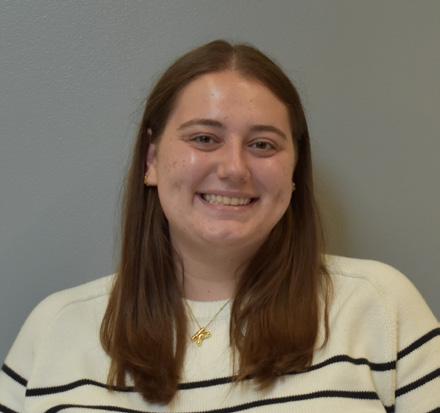
Ms. Katrina Donatello is a new CTE teacher this year, teaching Culinary Arts and Interpersonal Relationships. She recently graduated from Illinois State with a Health Education degree and a Family and Consumer Science endorsement, and this is her first year as a full-time teacher. She enjoys hanging out with family and friends, shopping, and going to concerts. “This past weekend I went to Detroit to go see Charli XCX and Troye Sivan on their tour, and it was the best show I’ve ever seen,” Ms. Donatello said. She is looking forward to getting to know all of her students in her first full teaching year. “I’m just excited to see where the year takes me,” Ms. Donatello said.

Ms. Julia Furukawa has joined Maine South as the district lead librarian. She attended the College of DuPage in Glen Ellyn, taking exploratory education and library classes. Then she transferred to Illinois State, earning a publishing studies degree. After graduating, she changed course and started working at a library while simultaneously beginning her masters in Library and Information Science. “I really like working with people,” Ms. Furukawa said. She has worked at numerous schools in the past before arriving at Maine South. “I have only heard good things about the entire Maine District,” Mrs. Furukawa said. She also enjoys baking, embroidery, and reading.

Ms. Meghan Ausnehmer has recently been welcomed by Maine South as an inclusion facilitator. This role centers around assisting teachers in modifying educational content to best suit the students in their class. Ms. Ausnehmer, who has taught at York High School for the past seven years, says her own learning experiences and special education services are what inspired her to become a teacher. At Maine South, she enjoys not only getting to know her students, but also her fellow staff members. “[My favorite thing is that] everyone’s really, really welcoming. Any question I have, someone will help me answer it, Ms. Ausnehmer said. “There’s a lot of great support here, so it’s very welcoming.”

Ms. Clare Gartland, a new member of the Social Science Department, is excited to bring an engaging approach to her US History and World Cultures classes. “I knew of the great reputation [Maine South] has and was thrilled when an opening popped up,” Ms. Gartland said. Her decision to pursue social studies was inspired by her personal experiences as a high school student. “There were [history] teachers that would come in energized every day, be really dramatic, and make class fun,” Ms. Gartland said. “I wanted to be able to do that.”
Ms. Gartland intends to captivate students with history by cultivating informative and memorable experiences within the classroom.
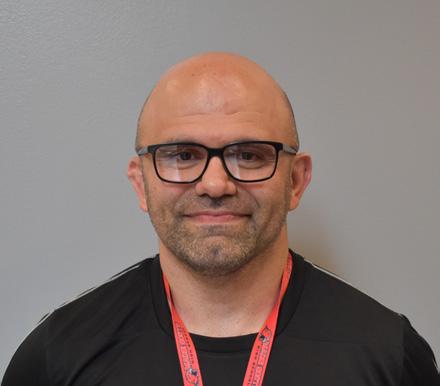
Dr. Antwan Babakhani is Maine South’s new principal. He began his career as an English teacher but has since found a new passion for educational leadership and helping teachers whenever possible. “Supporting teachers and supporting specialists is very rewarding to me because at the end of the day, that serves, in a different function, to support our students,” Dr. Babakhani said. He is excited to be working at Maine South and getting to know our school community. “I look forward to coming to school every day,” Dr. Babakhani said. “I look forward to meeting students every day, and talking to teachers every day. That genuinely gets me pumped up.” Outside of school, he enjoys spending time with family.
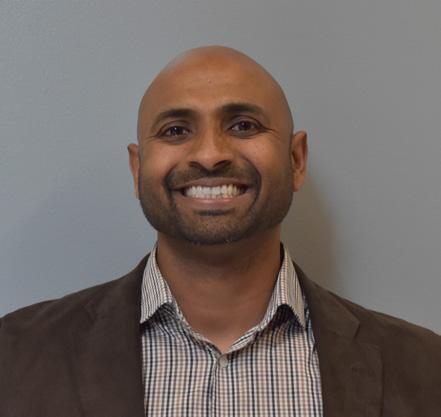
Mr. Jinu Joseph is the new Assistant Principal of Student Supports on Team White. His position includes addressing student behavior and supporting staff. This is his eighth year in administration, and he last taught at Westmont High School.
“Maine South is what I would call a ‘destination job’,” Mr. Joseph said. “The opportunity to be a leader in a prestigious high school is an honor. I look forward to building relationships with students—that’s always the thing that gets me going every day—and coming up with new opportunities to help students be successful.”
Outside of school, he enjoys comics, sports, and weight lifting, and on the side, he is a wedding emcee.
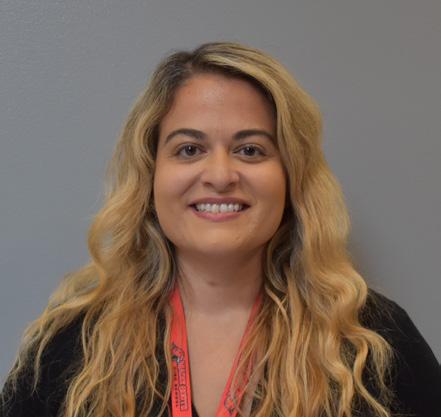
Ms. Vicky Karahalios has joined Maine South as a School Psychologist. Her day-to-day roles include counseling, supporting students with social/emotional issues, and working with the administration. She received her bachelors degree at DePaul and her masters at Loyola. Ms. Karahalios was inspired to study psychology by her first psychology course in high school. “I enjoy trying new restaurants, spending time with friends and family, and traveling in my free time,” Ms. Karahalios said. She has previously worked at hospitals, clinics, and community centers but is passionate about school psychology. “I know this is where I can make the most impact,” Ms. Karahalios said.
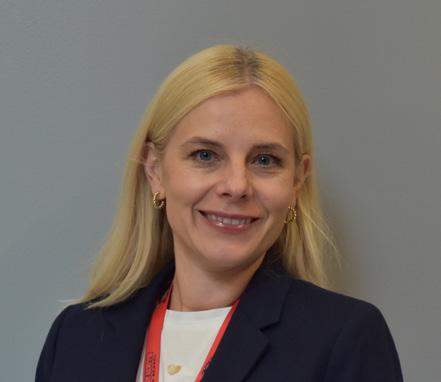
Ms. Anna Bartoszuk is a new literacy interventionist. She works with students in all grade levels who need assistance with reading comprehension and fluency. Ms. Bartoszuk was born and raised in Poland before moving to America, where she attended North Park University in Chicago. Ms. Bartoszuk was drawn to Maine South’s supportive community. “Knowing how much support District 207 offers students, and how much help is available, I wanted to be a part of that,” Ms. Bartoszuk said. She looks forward to making a positive impact as a teacher. “I disliked my high school, and I felt like school should be done differently,” Ms. Bartoszuk said. “That’s why I wanted to become a teacher.”

Ms. Olivia McAleer is part of the Maine South Science Department this year. She is coming in as a Biology 102 and Chemistry 102 teacher, having prior experience teaching at Carmel Catholic High School. “I’m definitely not taking it for granted that I’m working here—I’m really excited,” Ms. McAleer said. After school, she is an assistant coach for the Hawkettes. “[I] just love being outside…just being active and being moving,” Ms. McAleer said. Due to her love of working with kids, she changed course in college to become a teacher. “Seeing my students come out of their shells is always nice…I want them to feel value in their community,” Ms. McAleer said.

Mr. John Campbell is a new teacher in the Math Department, teaching Math 1 and Math 2, as well as a multilingual class. He is adjusting well to Maine South. “It’s been [a] very welcoming environment…and my students have been fantastic,”
Mr. Campbell said. Hailing from Colorado, he enjoys rock climbing in his free time with his wife. He also used to be involved in theater and improv. “I still use a lot of that in my teaching. The exercises for improv line up well with my teaching,”
Mr. Campbell said. With his teaching, he hopes to help his students collaborate and learn to make better decisions. “Slow it down, confirm that you’re right, and then move forward,” Mr. Campbell said.
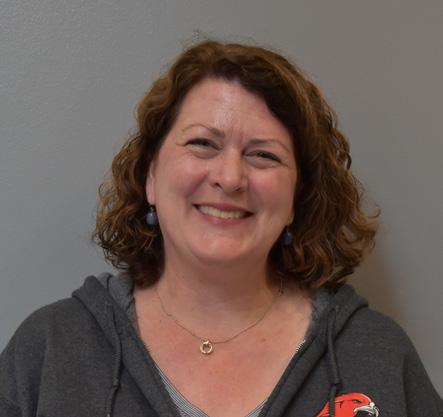
Ms. Christine O’Connor is a new addition to the English Department this year, teaching both English 1 and AP Literature and Composition. She began her teaching career at Maine West and has returned to District 207. Outside of teaching, Ms. O’Connor enjoys reading and spending time in nature.
“I like to spend time on the lake front, just walking, going to the beach sometimes in the summer, stuff like that,” Ms. O’Connor said. This year, she’s looking forward to getting to know the students and staff. “I’m really excited to get to know my students better, and to get to know more of the faculty and staff here at South,” Ms. O’Connor said. “It’s such a welcoming, friendly place.”

Ms. Jessica Castellanos is a health and instructional English teacher. She originally attended college to earn a double degree in Biology and Land Use Planning. While in school, she found a new career. “I started as a teaching assistant and I thought it was just a little job until I found a career in my field of choice, which was botany and land use planning,” Ms. Castellanos said. “It was supposed to be temporary but I really liked being a TA at Maine East.” At Maine South, Ms. Castellanos looks forward to involving herself with Botany Club. She is inspired by the positive community at Maine South. “The thing I like the most about Maine South is how friendly the staff is to newcomers,” Ms. Castellanos said.

Mr. RJ Schlesinger, of the Social Science Department, teaches both World Cultures and Civics and Government. He found his passion for education through personal experiences and returned as an educator to ensure that all students have an enjoyable experience. “I felt like [teaching] was something I could do and could see myself doing,” Mr. Schlesinger said. He has a vast teaching background. “I’ve taught just about all the advanced histories,” Mr. Schlesinger said. He gravitated toward Maine South due to the district’s favorable reputation and the staff’s reputation among other teachers. Mr. Schlesinger aspires to build a welcoming environment that fosters education for all students.
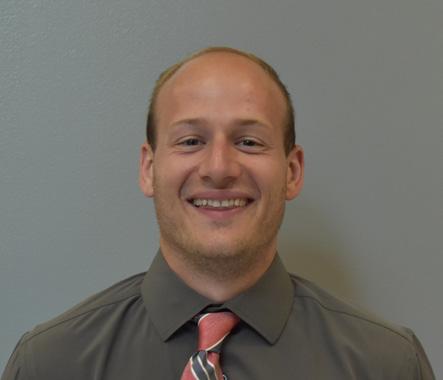
Mr. Joe Connolly is a new social science teacher at Maine South, teaching US History and Civics and Government. Since a high school trip to a World War II museum, he has been fascinated by United States history. He brings this fascination to his classes, where he hopes to bring history to life. “It brings it a lot more alive for students when they’re able to experience history as opposed to just open up a textbook,” Mr. Connolly said. Outside the classroom, he coaches the boys’ freshman soccer team, allowing him to exercise his passion for athletics. “It’s a really great opportunity to build connections with students,” he said. Beyond soccer, Mr. Connolly enjoys playing hockey with his brothers in his free time.
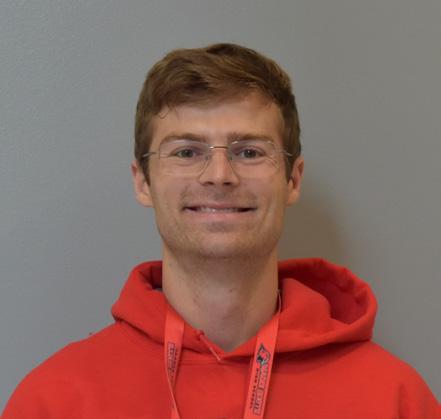
Mr. Matthew Smearman is a new teacher in the CTE Department at Maine South and will instruct both Accounting 1 and Intro to Business courses. This is his very first year as a teacher. Additionally, Mr. Smearman will be coaching the freshman B basketball team. He enjoys basketball outside of school as well, along with playing golf. He is excited to be working at Maine South. “I have heard amazing things about Maine South from a student I used to teach with,” Mr. Smearman said. “This school was definitely on the top of my list. Everyone here has been amazing, and has just made it easy for me because all of the teachers and students have been so nice and welcoming.”
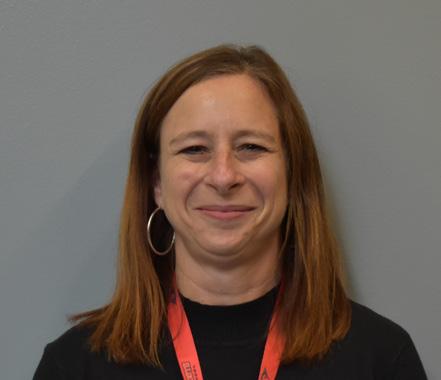
Ms. Jennifer Don is Maine South’s new librarian. She initially attended the University of Michigan, where she earned a degree in Economics. After that, she worked in business until she decided to go back to school, receiving her masters in Library Science and Education from the University of Denver. Ms. Don loves to work with students, and she was a middle school librarian before coming to Maine South. She looks forward to helping students in the library. “I will teach students different research techniques and about different books we offer here,” Ms. Don said. In her free time, she enjoys traveling and spending time with her family. “I’d love to travel to Fiji. I’d like to retire there,” Ms. Don said.

Ms. Emma Sukowski recently joined Maine South’s Health and Wellness Department, teaching sophomore PE and freshman Health. Ms. Sukowski has prior experience teaching, both at Humphrey Middle School and Hammerschmidt Elementary School. She aspires to make her classroom a fun, safe environment. “I wanted to be a health teacher to make a positive impact on students, like my teacher had on me,” Ms. Sukowski said. She chose Maine South because of its positive community. “Maine South’s supportive and inclusive environment aligned with my philosophies of being a teacher,” Ms. Sukowski said. She is excited to get involved as a badminton coach.
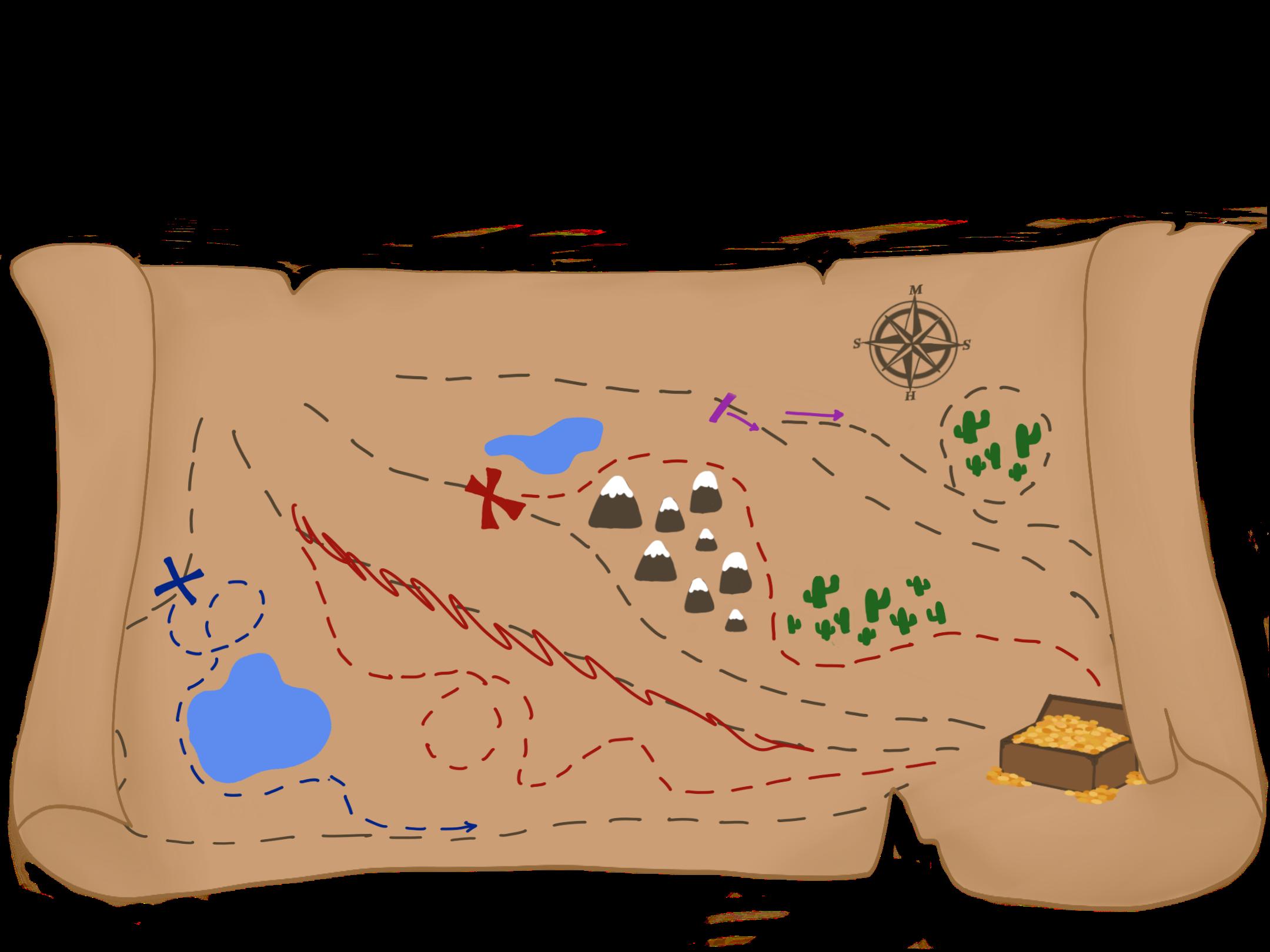
One of Maine South’s greatest appeals is its wide range of courses that enable students to explore interests, expand their knowledge, and develop college and career skills.
Because of the variety of course offerings, choosing the right classes is critical to having a positive high school experience.
Over the past three years, departments have undergone significant changes, including detracking and restructuring course offerings, which has made these choices difficult to navigate. This lack of consistency in academic pathways prevents students from having control over their own academic journey.
The incoming freshman class chooses their first-year schedule based on test scores, teacher recommendations, and a five-minute counselor meeting that will set them on a pathway for the rest of their high school career.
Those who don’t want to take an AP class freshman year will find it hard to “move up” in the future, even if they might be capable of taking a rigorous course load. Between counselor concerns, department restrictions, and the school striving for equity but indirectly labeling students as either “AP” or “standard,” the barriers to challenge oneself are becoming too high.
Instead of limiting students to classes that follow the trajectory decided for them as a freshman, summer bridge programs, such as those in the math department, should be offered
to adapt students to the pace and workload of advanced classes.
While bridge programs would provide students with more options, there is a deeper problem at play: limiting courses to specific years eliminates overlap across classes that formerly contextualized each other and built understanding. For example, current seniors who took AP Language & Composition as juniors read Frederick Douglass’s memoir around the time their US History class covered the Civil War. This year, sophomore students must take US History, ending the cohesiveness of two formerly junior-level courses.

“Students need to be empowered by the administration to take control of their own academic journey.”
For AP history students, AP World History contextualized AP European History, which contextualized AP US History, which contextualized AP US Government. Shifting US History to sophomore year interrupted this order, leaving a gap that many students fill with a non-history class.
While this may provide a “break” from challenging AP history coursework, especially as upperclassmen take other demanding core classes, the new arrangement overlooks students who thrive with a gradual increase in rigor.
If students were allowed to choose

Maine South High School
1111 South Dee Road
Park Ridge, IL 60068 http://www.southwords.org

when to take each class, specifically those without prerequisites, they could determine a course order that aligns with their individual goals, abilities, and interests.
Furthermore, with so many changes affecting each department on an annual basis, it’s difficult for students to anticipate which classes will even be available when they want to take them. The pathways, which are meant to provide guidance, become blurry as graduation requirements like Financial Literacy and US Government switch which years they are available or required to be taken.
This isn’t to say that change is inherently bad; in fact, it’s oftentimes necessary and beneficial for students. Still, it needs to be executed with ample notice and transparent reasoning.
Any change to course order or options should be implemented with the incoming freshmen class. Rearranging a pathway halfway through one’s high school career interrupts their plans and limits future options.
Additionally, when students aren’t clear on the reasoning behind decisions that affect their academic experience, it fosters resentment toward the school. If it could be articulated why these changes are necessary and beneficial, students might find the transition easier.
Ultimately, students need to be empowered by the administration to take control of their own academic journey by reducing the limits on course selection and barriers to challenge themselves.
Southwords is a student-run publication designed as a public forum for student opinion and balanced reporting on topics relevant to the Maine South community.
Unsigned staff editorials represent the consensus opinion of the Southwords Editorial Board. Personal commentaries represent the opinion of the author alone and do not represent the opinions of the publication nor District 207.
Student participation in the newspaper, whether through readership, submitting articles, or voicing comments or concerns, is encouraged.
Signed letters to the editor can be given to a member of the editorial staff or e-mailed to southwords@maine207.org. Southwords reserves the right to edit material for clarity and brevity and to reject obscene/libelous submissions. Scan
Editors-in-Chief
Thomas Hurley
Caitlin Vengazo
News
Joseph Calderon
Charlotte Chapman
Commentary
Features
Samara Lefler
Eliza Goldwasser
Hayden Magad Emery Yates
Quinn Annis Ava Jurek
Margaret Sheehan
Entertainment
Editors
Sayde Feeley
Grace Halpert
Josie Hennes
Sports Editors
Audrey Becker
Kyra Demeros
Brianna Giustino
Production Editors
Lily Giambarberee
Anastasia Musyakevich
Adviser
Mr. Stathakis

The beginning of a school year is always a time of transition and adjustment. Figuring out how to navigate Maine South, even as a returning student, is not an easy thing to do.
This challenge is especially notable for freshmen, who had little to no exposure to the school before August. Consequently, when it came time for orientation, many of them had questions.
Some of the questions were seemingly basic what door they needed to be dropped off at, what supplies they needed—all things that would hopefully be answered by school communications.
However, the answers were not clearly communicated. Instead, it was left to the Hawk PRIDE leaders to give answers to questions that they were not fully equipped to answer.
Take, for example, picture day. An email sent to parents from administration said picture day for freshmen
was on Aug. 14, the day of orientation. Hawk PRIDE leaders had not received any communication about this, and instead were told to emphasize dressing comfortably to the freshmen.
These conflicting messages led to a great deal of confusion for both the freshmen and the Hawk PRIDE leaders, making for a bumpier transition into high school.
Freshmen are not the only ones getting confused. The general consensus among Maine South students is that communication from the school has been lackluster at best.
Already this year, there have been multiple announcements given over the P.A. and through email that provide incorrect dates for events. Oftentimes the dates are corrected, but that just adds to the noise.
Students have been sent a number of emails both regarding, and later correcting, information about things like Meet the Teacher night and student IDs.
For example, the original date communicated for Meet the Teacher night, Aug. 31, was a Saturday. Soon after, the school sent a revision email clarifying that it would actually take place on Aug. 29. In order to prevent email fatigue, more care should be taken
to ensure initial emails communicate correct information, especially in messages to parents.
Another subject that caused confusion was student IDs, which were supposed to be electronic this year.
However, mere days after receiving their digital IDs, students received an email saying that the school was promptly returning to the traditional physical ID. The electronic IDs became invalid and would not work to scan students into the building.
This was because the school found that the company they were using for digital IDs did not meet optimal safety standards. While it’s good that the school didn’t forge ahead with insecure
IDs, perhaps the original decision was made too hastily.
A new school year always brings with it numerous changes, and it is understandable that errors will happen.
Additionally, since Maine South is such a large school, administration has a lot to deal with. It’s possible that the errors are unavoidable due to the rapidly changing nature of running a school.
Still, the clear distribution of information is crucial to a smooth transition into the new school year. A school like Maine South only functions when expectations are clearly communicated, especially at the beginning of a new year.

Thomas Hurley Editor-In-Chief
Seven weeks into senior year, it’s safe to say that most things have reverted to the normal rhythm of the school year. To me, it feels like it’s been a long time since we had to trade our sunshine for summatives and return for our last first day of high school.
Although some things are inevitably different as a senior, other things remain unchanged. For one, there always seems to be a shared jolt back to reality, often marked by sudden exhaustion, stress, and confusion.
This phenomenon has garnered the attention of educational scholars for decades. Back in the olden days (1996), scientists analyzed 39 studies on students’ academic performance before and after an extended break. They found that over the break, most students lost a large proportion of the information they learned and skills
they built in the school year.
While the research focused on elementary students, its impact was widespread. The term “summer slide” was coined to describe this common experience, and the phrase stuck.
Eager to counter the effects of this disruption to learning, educators and parents began to prioritize academic progress through methods such as summer school and assignments over break, which have maintained a large presence in education ever since.
Nowadays, academic pressure is reaching an historic high. In a 2019 survey by the American College Health Association, 85% of students said they felt mentally exhausted during the school year. In my own experience, every one of my friends has experienced what I’d consider an unhealthy level of stress at one time or another. I can empathize with them because I’ve also often found myself overwhelmed at school.
These towering stress levels make breaks more important than ever before—both well-supported research and my own experiences have showed
me how detrimental continuous worrying can be.
Because of that, I made a promise to myself this past May: this year I would make it a point to treat my summer break exactly how it’s intended to be—a break. Despite the looming presence of college applications, I was successful in blocking out regrets and concerns from the past while also shielding myself from the pressures of the future.
After all, I was learning things that wouldn’t be possible to teach in a classroom. It’s unsurprising that Maine South doesn’t offer courses on how to skip rocks, summit mountains, or navigate (albeit with difficulty) the streets of Chicago.
Even for someone who’s enjoyed classes, I truly believe my adventures over the summer with my friends and family revealed lessons altogether as valuable, if not more, than those found in a textbook.
This approach was worthwhile in the summer, but once school started back up, I became immensely frustrated with myself. I immediately felt that I had fallen far behind my
peers in the college application process and even in my classes, and started to wonder if I had fallen victim to a “summer slide” worse than any I had ever experienced—one that held the potential to make my postsecondary planning a mess.
Of course, these thoughts were exaggerations. After talking through the process in more detail with my counselor and parents, I started to feel like I was back in control. Just this simple change helped me realize how right I had been back in the spring.
In fact, I find myself learning more than I do under stress because I’ve given myself the chance to refocus.
While the summer slide may not be a myth, as most people would agree how important it is to continue learning even when not physically inside the school walls, I think there’s a little more nuance to what exactly “learning” is.
If we really define learning as the development of life skills and understanding, there might be nothing more important than knowing how to take a true break.
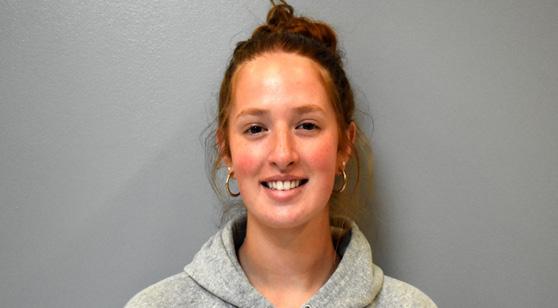
Emery Yates Commentary Editor
Growing up, our generation watched a plethora of movies and TV shows in which high schools were split into various “cliques.”
In movie after movie, main characters broke the so-called “status quo” by uniting students from different groups, bringing the whole school together.
However, when it was time for us to go to high school, these rigid friend groups were nowhere to be seen.
There were no jocks, no nerds, and no Plastics to be found.
Or so we thought.
In reality, when taking a closer look at the different friend groups at Maine South, it’s not hard to notice that the people within these groups often participate in similar activities. This makes sense when you think about it. When spending time with
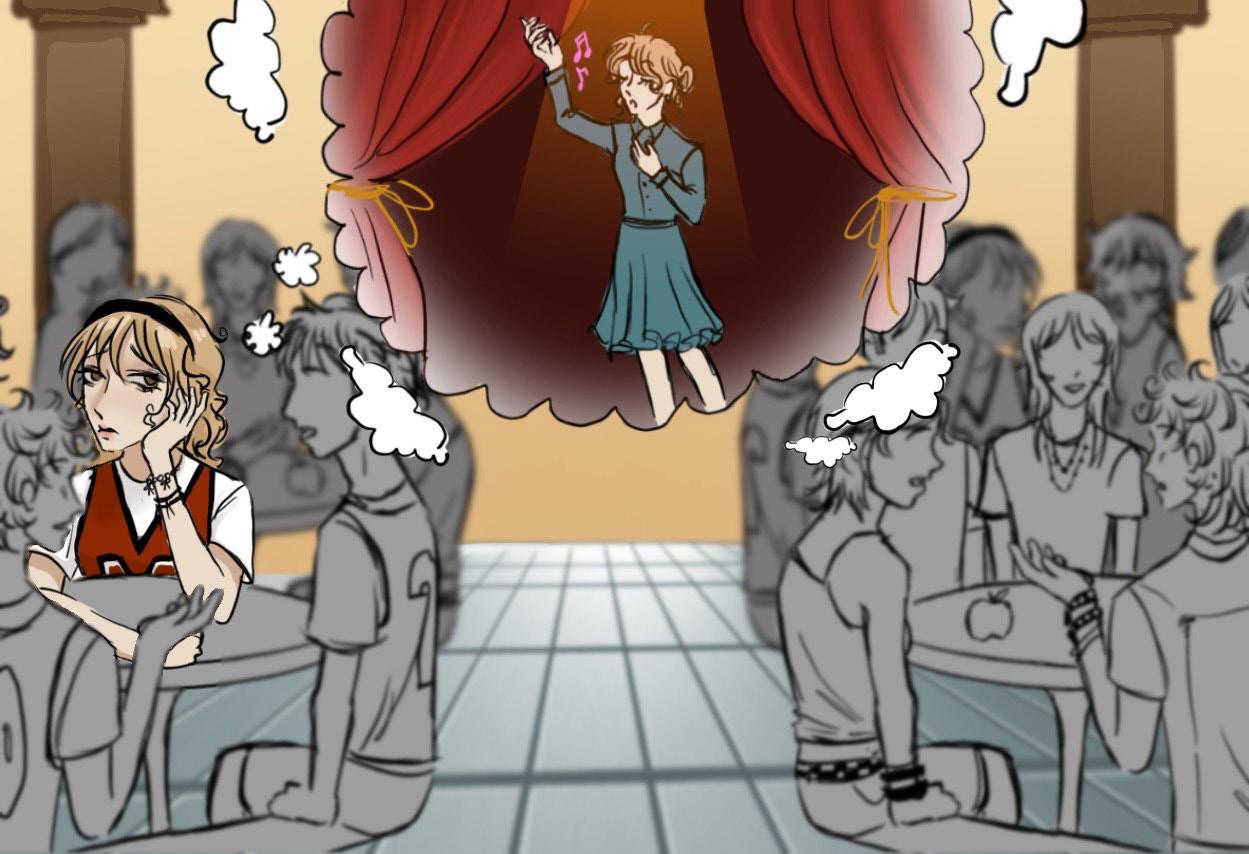
someone doing a sport or club, it’s only natural to become friends.
The problem is that friendships form sports and clubs, rather than friendships forming from sports or clubs.
While sharing many of the same interests as your friends is entirely normal, it’s also important to find out what you are interested in on your own.
It is imperative that high school is used to figure out who you are as a person and discover what you are passionate about.
Regardless, by not trying a new club or going out for a sport just because your friends aren’t, you limit yourself on what you get to experience.
There is a good chance that the friend groups that exist in high school are not going to continue on throughout college.
You wouldn’t base your major off of what your friends choose, so why base the classes and the activities you participate in on what they do?
It’s okay to be scared of not knowing anyone, but that’s how you make
new friends and gain new experiences.
Learning how to be comfortable in a room where you don’t know anyone is a valuable skill that stays with you throughout your whole life.
Going to a place where you don’t know anyone will grant you the chance to meet new kinds of people and obtain new perspectives.
This culture of codependency that has seemed to develop among teenagers over the years has begun to hinder our generation’s ability to make decisions for themselves.
There is such attachment between friends that having individual interests seems almost non-existent in today’s high school society.
In order to grow as a person you have to allow yourself to do new things even if that means being put in an awkward situation.
Otherwise, you will never expand your horizons and see what else the world has to offer.
So, go out for that sport, try a new club, and don’t “stick to the status quo.”

Hayden Magad Commentary Editor
In the past, when you walked into Maine South, you were immediately surrounded by school spirit.
The walls of the Spec. Gym lobby were lined with the best athletes of the past and the fieldhouse boasted the school records for all sports.
All of this is now gone, including the famous Spec. Gym lobby Hawk.
Despite our school being centered around Hawk PRIDE, sometimes it is hard to remember exactly what we are proud of.
While change is important, tradition is an essential component of defining school spirit.
Many artifacts and symbols of the past were washed away during construction, effectively removing the soul from our school.
The renovations brought us a new cafeteria, gym, and commons —all state-of-the-art facilities that undeniably modernized Maine South.
However, in this process, the school seems to have lost its personality.
Long stretches of glass hallways and black brick now define the walk to class everyday.
Our classrooms have been made victims of this issue as well.
When comparing images of the A-wing
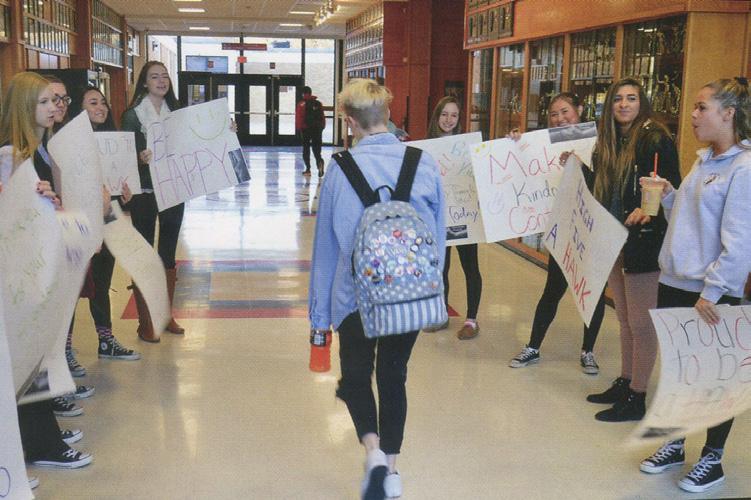
classrooms before and after, the difference is glaringly obvious.
During construction, the rooms were painted, the wooden walls were removed, and the classrooms became bland.
When sitting down in a classroom for 80 minutes straight, it can become headache-inducing to learn in a room that feels more like a hospital than a classroom.
This is not the case for every room, however.
Rooms that belong to only one teacher generally have more decorations and feel less monochrome.
Ms. O’Halloran’s room, A227, for example, is covered in fun chemistry-related posters and various murals painted on the walls.
Learning in a classroom like that with a more homelike feel can generally foster a more comfortable learning environment.
Thankfully, there is always room to improve.
As a school, we can find new ways to spruce things up and show our pride through the interior of the school.
One solution could be commissioning artists to paint new murals and art pieces around the school.
We can also find ways to take more pride in our school’s history.
This can start with a new Spec. Gym lobby Hawk.
Some may remember the days when it was criminal to step on the hawk.
Traditions like this showed that we were proud of our school mascot and acknowledged that it should be respected and not stepped on.
Another way we can restore some spirit is by giving more recognition to athletes, writers, and other accomplished Maine South alumni.
The images of the best talent of Maine South’s past in the Spec. Gym lobby was taken down during construction and will hopefully be restored soon.
In addition to this, we could give visible recognition to athletes like Olympian Filip Dolegiewicz or Tennessee Titan Peter Skoronski, both of whom are Maine South alumni.
With some of the best athletic programs in the state and an award-winning theater program, we have more than enough to be proud of.
Our school pride and the rich history of our school is something that should be clear to anyone who walks our halls.
Maine South needs to return to the days where the hallways of the school represent the students unwavering school spirit.
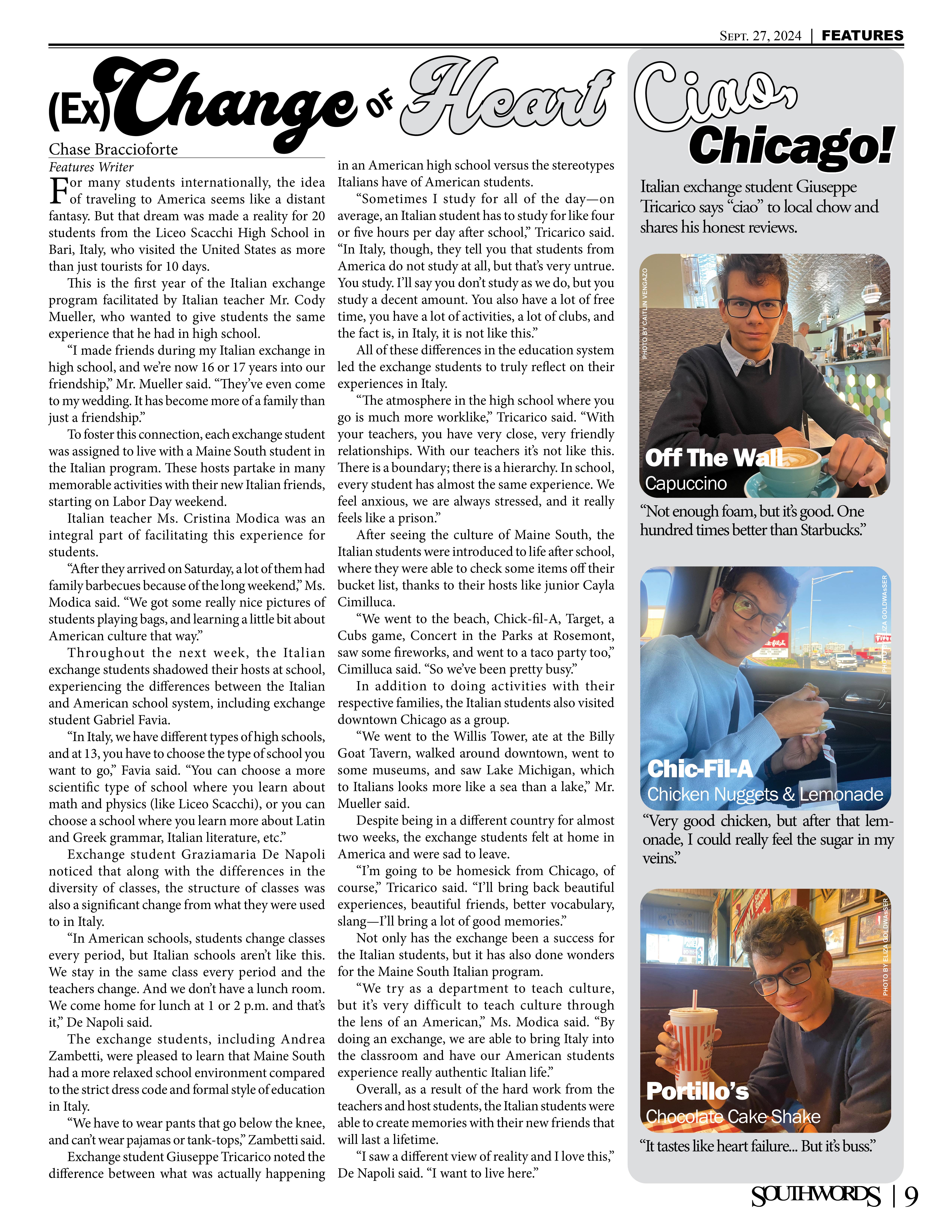
Brenda Molina & Margaret Sheehan Features Writer & Editor
In recent years, new course offerings in the CTE department have encouraged students to explore STEM careers in engineering and manufacturing. This year, the new CIM class offers further opportunities for students to learn about these careers.
The new CTE class Computer Integrated Manufacturing (CIM, pronounced “sim”) prepares students for future careers in trades, engineering, and manufacturing.
“CIM is very unique,” Mr. Victor Fuentes, who teaches CIM, said. “It can tie into mechanical engineering, industrial engineering, and really any engineering that involves designing parts from scratch.”
Previously, CIM was offered at Maine West for South students willing to take the class off-campus. Now that the school has obtained the equipment necessary for the curriculum, 58 South students are currently enrolled in the course.
With the use of a new mill, CIM students can deconstruct materials, a method called subtracting modeling.
“It’s the exact opposite of 3D printing because you take away materials instead of adding material,” senior Jack Etchason, a current CIM student, said.
This machinery provides students with a new perspective of manufacturing.
“CIM is all about subtractive modeling, so you start with a block and chisel it down from your base material to your finished product,” Mr. Fuentes said.
In addition to its emphasis on subtractive modeling, the curriculum incorporates two key pillars of computer integrated manufacturing: GNM code and computer numeric control (CNC).
“GNM code is how machines, for example, mills, run and move in a coordinate system,” Mr. Fuentes said. “We learn about absolute coordinates and relative coordinates. We also learn about computer numeric control, or CNC, which involves running a mill or any other table that follows coordinates.”
GNM code provides the mills with
instructions on how to move within the 3D coordinate system. Students also learned about 3D design and modeling using Fusion software.
“We used Fusion and Adobe programs for modeling and learned about how to translate the models into code which we would then send to the machines,” senior Grace Koch, a former CIM student, said.
These machines were purchased by the school to help students learn and familiarize themselves with code.
“For the classroom, we have small desktop mills from HOS that only move 7x7 inches,” Mr. Fuentes said. “Those are good trainer machines for the students. When they graduate and go deeper into the curriculum, they can go to the bigger 26x12 inch machine in our workshop.”
However, mills are not the only tools and machines that students use. They also learn how to use a lathe, plasma cutters, and lasers.
“We learn how to change tools, set up machines, and run the program successfully,” Koch said.
These tools, though crucial to students’ success in CIM, are very costly.
“Our small mills are about $10,000,” Mr. Fuentes said. “The sticker price of our bigger mill is about $50,000-60,000, but since we’re a school, we get a discount. Plasma cutters, like the one we’ve had in the back now for a while, are about $10,000-20,000. Prices can range depending on companies, but for the most part, you’re looking at a good $100,000 to get started on things.”
In engineering and manufacturing fields, the subtractive modeling ability of mills are used to make car parts, specifically rims. In CIM, students experiment with various designs and projects using the mills, even competing in engineering competitions downtown.
“In class, we’ll make coasters, a block with our initials on it made out of plastic, and an aluminum jack cube with a piece in the middle that can come out,” Mr. Fuentes said. “We also make other competition pieces for a tool and manufacturing competition here in Chicago.”
The skills learned in CIM build off of other classes offered by the CTE department.

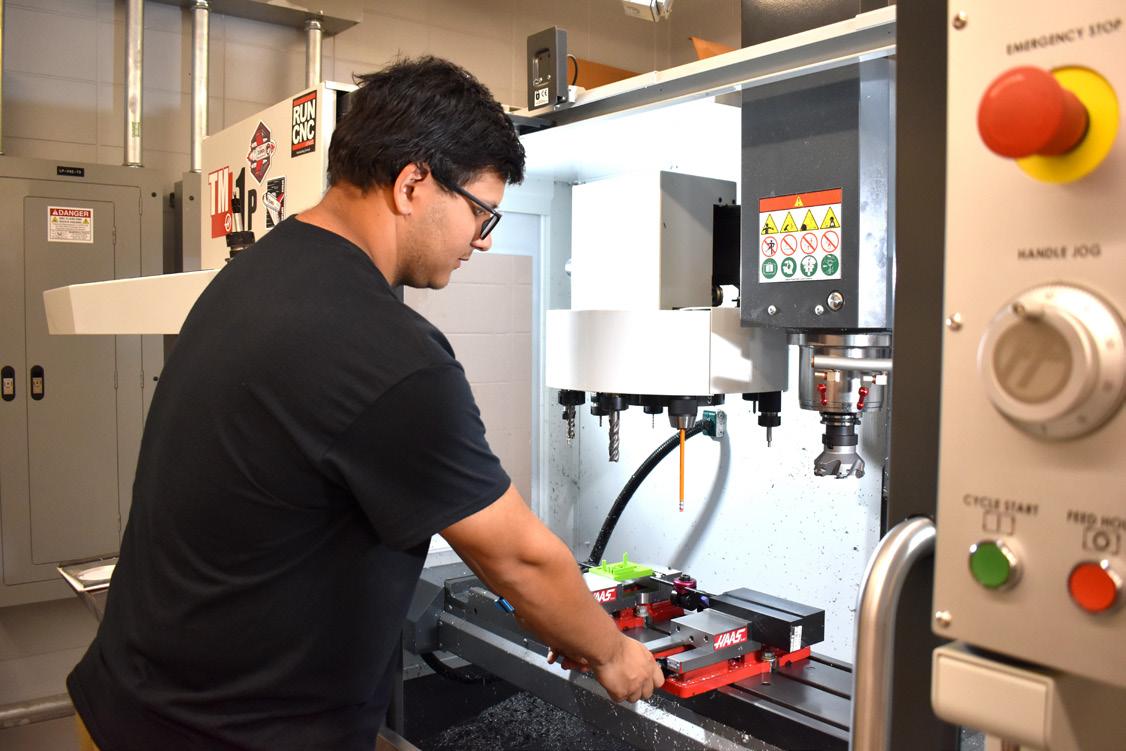
“CIM was similar to the Intro to Engineering Class I had previously taken,” Koch said. “This class helped prepare me for the basic Fusion skills that I needed in CIM.”.
Both Koch and Etchason found CIM beneficial for exploring the engineering field.
“CIM was different from the other engineering classes that I had previously taken because it was so hands-on,” Koch said. “I really enjoyed the opportunities I had to use all of this very advanced
equipment. CIM helped me gain a better understanding of what I possibly want to do as a career in the future.”
Ultimately, the new CIM class is effective in preparing students for their path beyond high school.
“The engineering mindset is problem solving,” Mr. Fuentes said.
“Now that students understand the connection between the computer and machine, they’ll have a really good leg up for college and then also, industry.”
Nineveh Adam Features Writer
What began for junior Ella Goldklang as a 2023 passion project for college has since grown into a meaningful business. She is the founder of ‘Meaningful Muffins by Ella’, a nonprofit bakery dedicated to raising awareness about the differing ability community. Goldklang bakes and sells a variety of different muffins, and all profits from her muffin sales go towards organizations supporting individuals with differing abilities.
“I have a brother who goes to Maine South who has autism and other distant family members that are a part of the neurodiverse community,” Goldklang said.
Her close ties to members of these communities gave Ella the inspiration for where she wanted to donate her profits.
“All of the muffin sales, all of that money generated, I don’t keep any of it, not even to cover costs or anything,” she said.
Goldklang advertises her muffins through social media and sells them on a website she created.
“I do online home delivery orders,” she said. “We deliver in Park Ridge and within 10 miles of Park Ridge.”
Through her business, Goldklang was able to combine her various passions.
“I paired my love for baking with my desire to help people with differing abilities to create Meaningful Muffins,” Goldklang said.
Every few months, Meaningful Muffins shines a spotlight on a different disability and donates the proceeds to an organization that supports individuals who have that disability.
“We are passionate about raising awareness and promoting inclusivity for all people, no matter their abilities or mental health status,” Goldklang’s website says.
Goldklang’s personal experiences have influenced which organizations she chooses to support, too.
“A few months ago I was highlighting autism because I have a family member with autism, and I am a social buddy at Have Dreams,” Goldklang said.
Have Dreams is a nonprofit organization founded in 1996 in Park Ridge that provides resources for individuals and their families living with Autism Spectrum Disorder.
“We donated around $1,200 to Have Dreams a few months ago,” Goldklang said.
After working with Have Dreams, she decided to collaborate with an organization that works with people who have Down Syndrome. Through a fellow Maine South student, Goldklang was introduced to the Amina Grace Memorial Fund, working with their executive director Anne Marie Brown.
“I am so thankful for the opportunity to work with a young entrepreneur like Ella who puts her passion, time and talents into advocating for inclusion and acceptance of individuals with differing abilities,” Brown said. It’s wonderful to have her join our effort to promote awareness about what individuals with Down Syndrome are capable of achieving.”
Goldklang is also grateful for the partnership because it has taught her many new skills, including tips on running a business.
“They’re really helping me to find out what it means to be a business and
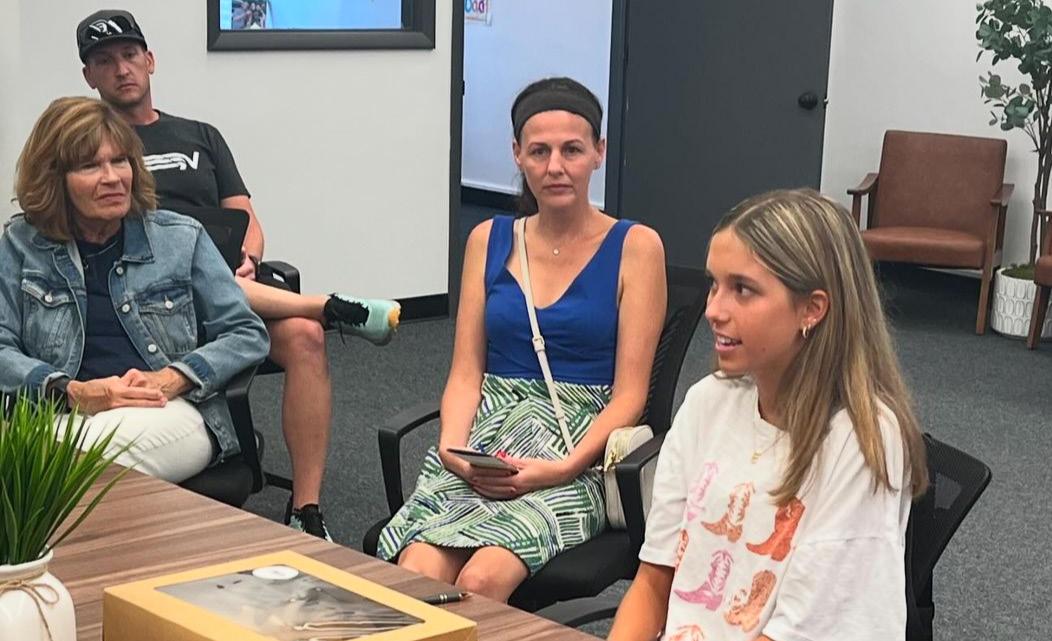

how to help others,” she said.
As for why she chose muffins, Goldklang said that the idea came from the lack of custom muffin businesses.
“I just decided that muffins are a really good thing to bake, because there’s no general muffin bakery you’ll find,” she said.
Goldklang first discovered her love of baking as a young girl baking with her family.
“I used to live in Georgia, and I have these memories of me making pumpkin chocolate chip muffins with my family,” she said.
Today, Goldklang balances being a business owner with being a 16-yearold high school student. Outside of school and her baking business, she also has an internship at Lutheran General Hospital. Despite her busy schedule, she is able to find balance because of the support of those close to her.
“I have help from other people,” Goldklang said. “My family members act as my managers.”
She says that her success would not be possible without the support of her friends, either.
“My friends are really good at supporting me and making sure that I am always happy in getting my school work done,” Goldklang said.
Goldklang’s dedication to baking delicious muffins and funding important causes have attracted loyal customers like Lauren Meyer.
“Meaningful Muffins by Ella not only supports important causes like autism awareness, but the muffins are so good too,” Meyer said. “The variety of flavors are great and the bake is always perfect. Ella makes it easy to support different causes while providing a delicious incentive.”
As she prepares for college, Goldklang shares that she hopes to go to school on the West Coast, but that won’t stop the business.
“My business would stay alive, because I have a younger sister and she’s taking over my business,” Goldklang said.
The co-founder of the Amina Grace Memorial Fund, Maura Cullen, feels that Ella’s business will have a profound impact on our community as a whole.
“We are thrilled that Ella chose the Amina Grace Memorial Fund and grateful that she is dedicated to promoting inclusivity through Meaningful Muffins,” Cullen said. “It takes a village to raise awareness, and Ella is not only improving the lives of people with differing abilities but also inspiring our community to take action.”
Ella Cedeno
Entertainment Writer
Maine South Theater was represented at the national level this past summer at the Jimmy Awards— the National High School Musical Theatre Awards celebrating the best high school actors and actresses in each state. The annual awards took place at Broadway’s Minskoff Theatre in New York City on June 24, 2024. Senior George Spiegel was a Best Actor nominee, and senior Nicole Scimeca was one of two student reporters.
Scimeca and Spiegel previously participated in the annual Illinois High School Musical Theatre Awards in Chicago. Maine South was nominated for Best Production for the spring musical “Pippin,” and Spiegel was nominated for Best Performance in an Actor Role as Pippin. Scimeca applied and was selected as one of two student reporters from Illinois.
There, Spiegel performed amongst 23 nominees, was selected as one of 6 finalists, and then won Best Actor, qualifying him as a Jimmy’s nominee.
“I remember being there [last year on behalf of ‘The Addams Family’] and it was very exciting and everyone was very talented,” Spiegel said. “I was like, ‘This is a goal I’d like to reach by my senior year.’”
Spiegel then represented Illinois at
the Jimmy Awards alongside Illinois’s Best Actress winner. There were 10 days of rehearsals and master classes with professionals in the industry. At the ceremony, everyone performed, yielding eight finalists, which eventually led to two winners.
Scimeca became a regional nominee for Jimmys student reporter, and had to make a promotional video. She made the top 10 student reporter finalists, so the Jimmys posted her video on Instagram. When choosing the reporters, analytics mattered. Her video was successful in getting many comments and views, so Scimeca was selected as one of two student reporters for the national awards.
“When I found out, I was so excited because I worked so hard on the video and everyone was supportive,” Scimeca said.
As student reporter, Scimeca created videos and conducted interviews on the red carpet with nominees, Jimmys alumni, and professionals in the industry— such as Andrew Barth Feldman, Casey Likes, and one of her former Anastasia cast members from her time on Broadway.
She was also able to tour New York’s ABC News Studio and learn about the behind the scenes of broadcasting.
“I learned all about the behind the scenes of the broadcasting aspect
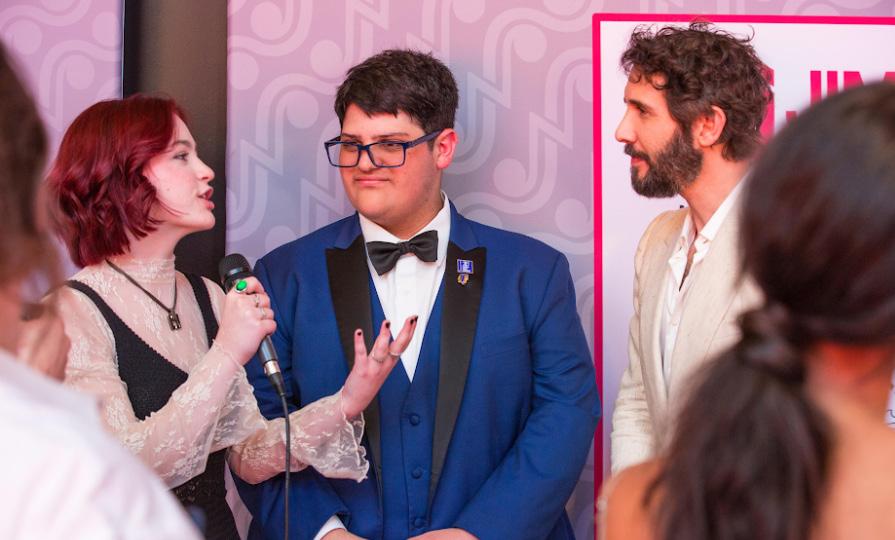
of news and how everyone gets their stories,” Scimeca said.
This experience allowed the nominees to both learn and form valuable connections.
“It was cool staying in Juilliard dorms, my headshot being in Times Square, performing on Broadway, and meeting famous casting directors, producers, and actors,” Spiegel said. “But what I got most from it is meeting the other nominees and instructors. Now, instead of watching the Jimmys and thinking ‘they’re talented and magical,’ you realize they’re humans.”
Scimeca and Spiegel have been involved in the arts together for
years, and attending these awards together was extremely special for both of them.
“I was really glad to do this with George,” Scimeca said. “The possibility of doing that is so small, and it was so full-circle. We were the only two freshmen called back for ‘Chicago,’ we’ve done School of Rock together, and now what are the odds that we both did this amazing thing?” It’s extremely rare that multiple Maine South students would attend the awards in the same year.
“That’s a once-in-a-lifetime opportunity for this school,” Spiegel said. “Having two people go to the Jimmys is insane.”
Josie Hennes
Entertainment Editor

The beloved book and numberone New York Times Best Seller “It Ends With Us” inspired a liveaction film this past summer. The film captures the viewer’s attention from start to finish with a compelling storyline that beautifully conveyed the important messages of the book.
“It Ends With Us” follows Lily Bloom as she navigates new and old relationships, works through past trauma, and opens her new flower shop in Boston. There are two main love interests: Atlas, her first love, and Ryle, her current boyfriend.
Both the book and movie allow the viewer to experience Lily’s past relationship with Atlas through

well-placed flashbacks to Lily’s teen years. The actors who portrayed the young versions of Lily and Atlas had amazing chemistry that was palpable through the screen; this helped build the foundation of Lily and Atlas’s
relationship, which is essential to the rest of the film.
The book is well known for covering domestic violence in a very personal way and showing the devastation and destruction that it causes. The movie does a phenomenal job at addressing the issue by creating a very real relationship that started off good but quickly became toxic. The viewers saw firsthand how there were still good moments, which made it easy to understand why it becomes so difficult for an abused partner to leave.
For fans of the book, the descriptions of the characters didn’t match the physical traits of the actors. For example, main character Lily Bloom is described as having fiery red hair, simple outfits, and being in her early 20s, so when 37-year-old Blake Lively appeared on screen in eccentric outfits and blonde hair, it was difficult to see the book character and Lively as one and the same.
Despite these physical differences, Lively is a talented actor and made her character seem very real by having a wide emotional range and portraying intense emotions, both good and bad.
The movie shows how difficult it can be for someone to leave an abusive relationship, and all the actors bring these feelings to life. For example, Justin Baldoni, who plays Ryle, was able to convey not only his anger towards Lily but also his love for her, which made the movie evoke the feeling of immense frustration at having to choose what you know is best over what you want.
Aside from the casting, the movie was true to the book, including the same places, characters, and actions, that matter to readers. Even for those who haven’t read the book, though, it is an important film that conveys a strong and impactful message, while bringing awareness to and advocating for important issues.
Antonia Argionis
Entertainment Writer
Student actors, crew members, and directors have been working since August to ensure that the fall play, “The Laramie Project,” is told in a personal and accurate way.
This story is based on the true events of a severe hate crime in 1998. Matthew Shepard was 21 years old attending college in Laramie, Wyoming, when he was kidnapped, severely beaten, and then left tied to a pole where he suffered in pain for 24 hours until he was found. He was taken to the hospital only to die several days later. Shepard was the victim of this assault simply because he was gay.
“The Laramie Project” differs from past productions for many of reasons.
“This show is much more heavy and dark than any other show I have worked on,” senior and assistant director Naomi Nishi said. “There is a lot more pressure to present an accurate and respectful portrayal of a horrible situation. It has been so rewarding so far, but I have also been taking great care to keep this show true to its message.”
Unlike a typical production, specific measures have been taken to create a more intimate experience.
“This show will have the actors performing much closer to viewers than other shows,” senior stage manager Jaden Clarke said. “There’s a stage extension which goes where the first few rows of chairs would normally be.”
All props and costumes used will
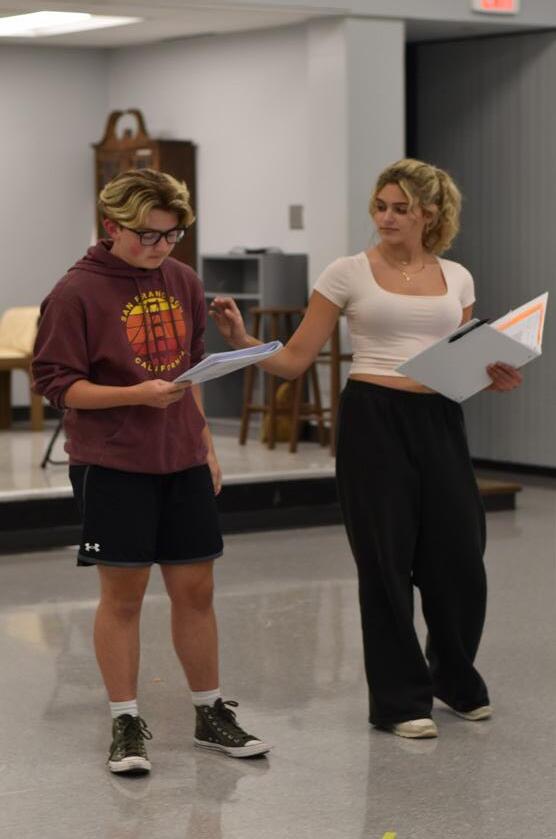

also be on display to the audience the entire time. This is different than usual plays where materials are changed or moved around for different scenes.
“Showing the costumes and props to the audience at all times reflects their authenticity,” Clarke said. “It’s not meant to be a production; it’s meant to be a reflection of life.”
The individual scripts for each character are also very unique to any other production.
“This show is completely different from anything the cast and I have worked on because it’s what we call ‘verbatim theater’,” director Mr. Joseph Fitzpatrick said. “This is where the dialogue of the play is conceived from exact transcriptions of interviews conducted to string together the story of this town’s reaction to the murder of Matthew Shepard. It’s different to have the actors playing real live people as opposed to fictionally conceived characters.”
This use of real quotes for character lines results in a very unique show where the audience never even sees the main character, Matthew Shepard.
“You never see his death or get lines from him because Matthew was never alive to tell his story,” junior cast member Ash Lepore said.
The production team took every measure to recreate this show’s message while also staying true to the real life events it came from.
“This show is about acceptance,” Clarke said. “Matthew Shepard’s murder was devastating; it led to change around both Laramie and the country, and today, Matt isn’t alive to see it, but there is more acceptance than ever before.”
To gather authentic information, students virtually met the father of Matthew Shepard, Dennis Shepard, to gain a deeper understanding of the significance of his death and who he was.
“Unfortunately, Matthew’s murder is still relevant,” Shepard said in the meeting with students. “Marginalized people across this country continue to be discriminated against and bullied relentlessly. Matthew’s story should not be relevant anymore.”
The idea of the play came from a man named Moisés Kaufman and members of the Tectonic Theater Project. They interviewed over 200 people in Laramie, including those who were at the trial where two men were accused of murder.
They used these interviews to create a performance that was not only moving, but also held an important message to the world about the duality of hatred and empathy among human society.
The students and staff involved in the production believe that the themes of the show are crucial for the community to hear.
“People should come see this show because it is an extremely important message that everyone in the community can learn from,” Nishi said. “‘The Laramie Project’ discusses themes of hatred and violence against minority groups, specifically LGBTQ people, and it spreads awareness on this topic in a way that’s not talked about enough.”
Working on such a meaningful project has not only connected students but also reinforced the sense of community within the theater program.
“It is so rewarding to be a part of something so huge at school, and working in plays is a fantastic way to meet lifelong friends,” Clarke said. “While there is a lot of time commitment for the shows, it truly brings so many students and teachers closer together and I have grown to love it over my time here at Maine South.”
“The Laramie Project” will be performed on Oct. 24, 25, and 26 at 7:30 p.m. and Oct. 27 at 2:00 p.m. Tickets will be sold at the door.
“This is an important story about the impact of one life on many—of what it means to both belong and be an outlier, to love and also to hate, to hurt and to heal,” Mr. Fitzpatrick said. “But most importantly, this is a story that begs us to make life better for everyone else.”
Sophia Iniguez & Isla Craig Naples Sports Writers
The girls’ golf team is approaching the end of their season with some of their best scores yet. Many players have even shot personal bests at their recent matches at Deerfield and Waukegan.
The CSL South conference is historically competitive, including the top team in the state, Glenbrook North. The girls’ golf team will play against GBN at the conference meet.
“Being in a conference with some of the best girls’ golf teams in the state means that all we can do is play our best golf and not get intimidated by these Division 1 commit golfers,” said senior captain Makayla Waters.
The team has a list of goals with intentions to end the season on a high note.
“This season, our primary goals include improving individual and team scores, fostering a supportive team environment, and sending as many golfers as possible to the IHSA Sectional as sectional qualifiers,” Coach Kayla Hansen said.
Being a tight-knit team is important to both the captains and coaches, and the team does more than just play golf together to achieve this.
“My fellow captains and I have a goal of making the girls’ golf team the most tight-knit sports team at Maine South,” senior captain Makayla Waters said. Enjoying Crumbl cookies or decorating golf balls are just some of the things that the team does together to encourage team bonding.
Many of the upperclassmen on the team bring positive attitudes that are necessary for success in golf, which doesn’t go unnoticed by the younger players.
“[Senior Tiffany Wu] always seems to have such a positive attitude at matches, practices, etc.,” sophomore Audrey Gress said. “She shows values of acceptance, patience, and teamwork.”
Positive outlooks like Wu’s help influence the younger golfers and create good values for the team.
Coach Hansen is an essential part of the team in addition to the leading players.
“[Coach Hansen] is so encouraging and un derstands the great happiness and frustration that comes with the game of golf, something that a lot of other golf coaches don’t understand,” Waters said.
Although the team has not made it to state since 2018 they are hopeful this year will be dif ferent.
“By staying focused on ourselves, we will hopefully be able to achieve the greater goal of going to state,” Waters said.
drive on the 3rd hole at the Park Ridge Country Club on Sept. 3. The Hawks lost against Saint Viator.

Sofia Rossi Sports Writer
After losing to Barrington, 35-42, in a hardfought battle, the Maine South football team’s record sits at 1-3. The Hawks have faced challenging teams including #3 ranked Lincoln Way East.
With the first half of their schedule stacked with strong competition, the Hawks faced adversity early in the season. However, they are still confident that they can achieve their goals for the rest of the season.
Nevertheless, these early losses are only benefitting the team, as they will utilize them as
Having a strong work ethic, the team knows what it takes in order to be great. Winning their home opener against Warren with a score of 3518, the team showed their potential and strength on the field.
Lots of preparation goes into playing at a high level, and the team takes precautions against potential injuries.
“It is key to stay hydrated and healthy in order to prevent injuries, and play at our top level,” senior wide reciever Mason Patras said.
Against Lincoln Way East, several players went down with injuries. Thankfully, none of these inju-

“It was mainly a lot of cramps, something very
Typically, the starters play most of the game, but mistakes and unfortunate situations happen, so it is important that each player is ready for an
“We prepare the backups along the way and keep them ready just in case they need to play at
The team’s foccus on rewarding postive teamwork helps make the replacement of players in a game seamless. Their slogan this year is “Accomplishments increase when no one cares about credit.” Coach Inserra has instilled this year’s motto throughout the season, inspiring the players to
“[The slogan] helps us build on each other as a team and not as much ourselves,” Mullan said. “What we do every day, whether it be in practice or game, makes us achieve and build the bridges
Overall, the Hawks know what it takes to achieve their goals of making it far in the playoffs, and ultimately to State, and have set high standards for themselves. It’s more important to the team how their season ends, not starts. The team is prepared
“We’ve been working so hard since the summer and I strongly believe we are a State-caliber team that can make a deep playoff run,” junior Henry
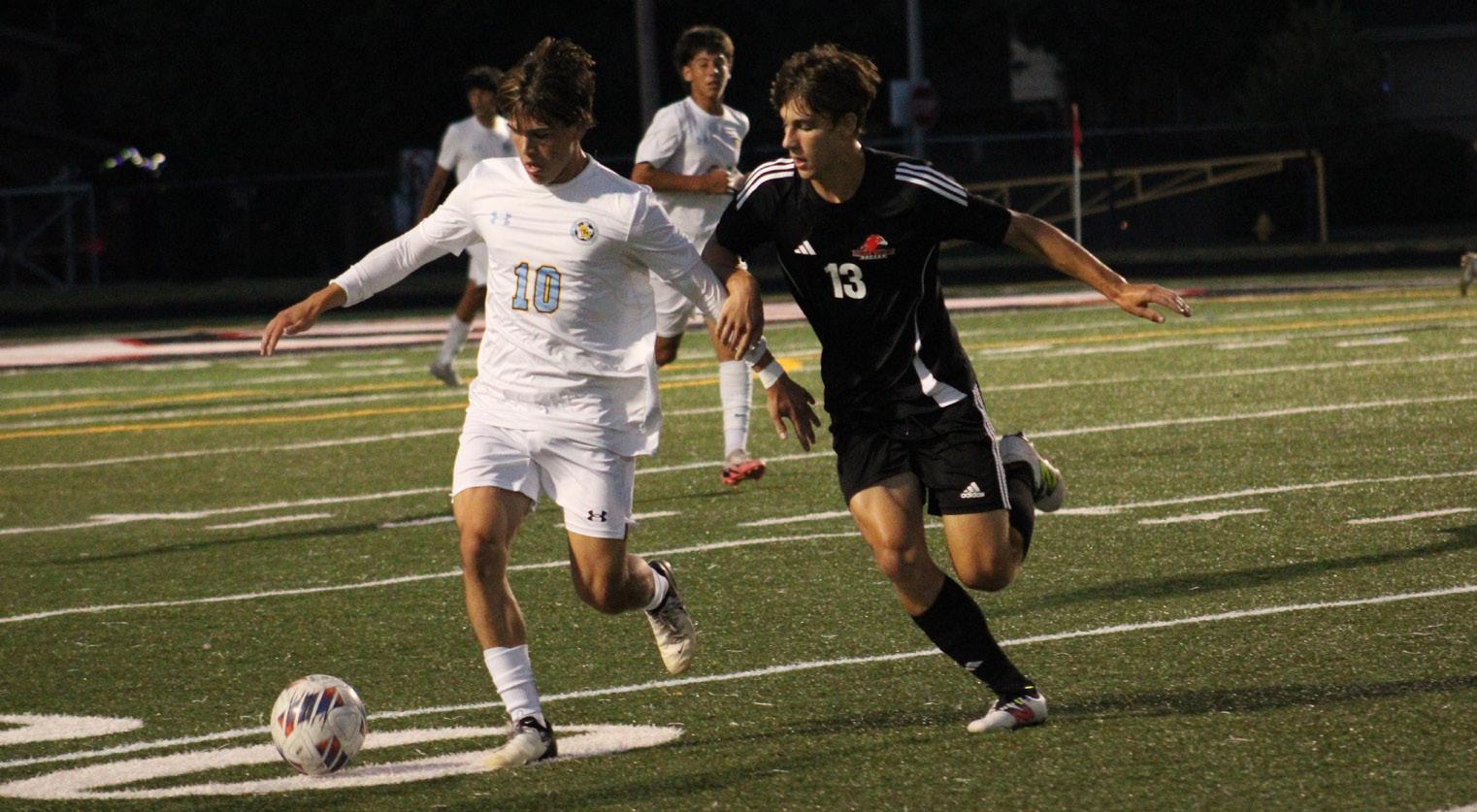
Ava Kontuly Sports Writer
The varsity boys’ soccer team has had a strong start to the start of their season. With a record of 7-3, they have had some significant wins to begin the fall.
They started off by winning their first game against Elk Grove 2-0. Many of their victories have consisted of high-scoring games, which includes a 5-0 win against Niles West.
Coach Daniel States commended his team’s work ethic this season.
“It has been a solid start to the season and the guys are starting to gain form and become more consistent in their approach to the game,” Coach States said.
The team’s desire to perform well has been evident in many of the players’ attitudes.
The team believes that they have been working their hardest to achieve their goals this season.
“We’ve been putting in the work during both practices and games, striving for excellence and aiming to deliver the best possible results on the field,” senior captain and goalie Joe Figula said.
They are hoping to continue their winning streak throughout the season and into postseason play.
“Our team has been working hard since the start of the summer and hope to show it during playoffs this season,” senior captain Kosta Loucopoulos said.
The competition level this year has been very strong not only for the boys’ varsity team, but also for the boys’ soccer program as a whole. The program saw a record number of players, specifically freshmen, at tryouts this season.
“The competition was fierce, making every decision more challenging,” Figula said. “This season saw an unusually high number of cuts due to the
large turnout and impressive talent pool, especially among the younger players.”
On account of the large number of players, the coaches made the decision to have tryouts two times a day.
“The additional tryout sessions for the upper levels serve two purposes,” Coach States said. “First it is to create a fair and comprehensive evaluation of each player’s strengths and weaknesses over the course of the first week. Secondly, the training is to initiate the developmental process for the players and the respective teams as they prepare for difficult fall schedules that begin just over a week later.”
The coaches hoped that this allowed for a better understanding of each player’s abilities on the field.
“I didn’t mind having tryouts twice a day because we had a lot of players trying for varsity,” senior Charlie Kasicki said. “I think it was necessary due to how many players were trying out.”
The historic number of freshmen trying out allowed for a freshman “B” team to be added to the program.
“This allowed us to keep another 20 freshmen this year,” Coach States said. “Otherwise, we would have been forced to cut even more players away.”
With the addition of a new team, Coach States is hoping to utilize every athlete’s skills.
“[We want to] maximize the potential of each team as we focus on individual player development for those respective levels,” Coach States said.
Despite all of the changes this year, the varsity team is very confident that they can make a good run.
“I have a great feeling about this team,” Figula said. “The dedication and hard work we’ve shown makes me confident that we’ll have a successful season, with a solid chance of making a deep playoff run.”
Brianna Giustino Sports Editor
Thegirls’ varsity volleyball team has started their season with motivated, determined mindsets. The team is led by seven seniors who use their experience as teammates together to create a cohesive and seamless environment for their entire team.
“Being a senior brings a different type of leadership, as well as a different perspective,” senior Ana Petrides said. “As a senior, I always try to make sure that everyone is doing well on and off the court, as well as encourage my teammates no matter what.”
This year there are a total of three sophomores on the team, making it lean towards the younger side. However, younger players aren’t the only change in the team this year. The team welcomed a new head coach to their staff this year, John Weilend.
“Coach Weiland is a club coach, too, so he knows a lot about the sport,” senior Danielle McGillvary said. “He has shown us new drills to help us get warmed up before games, and he provides a really encouraging environment.”
The team is anticipating a competitive season with a game against 14-2 Loyola on Sept. 26. In their game against Glenbrook South, they lost 2-0, and the team has a record of 10-6 at press time. They are hopeful for the remainder of the season, and are ready to practice and improve.
“We always love to hang out with each other, and that translates to games because we always root for each other no matter what,” Petrides said.
It is crucial for the team to communicate both on and off the court, so they prioritize getting to know each other outside of practice as well as help one another during each practice.
This support is crucial because each team member is balancing a heavy workload with their already rigorous practice and game schedule.
“It is really important to all of us that we do well in both school and volleyball,” senior Grady Bridges said. “In order to do that, we need to prioritize our school work and have good time management.”
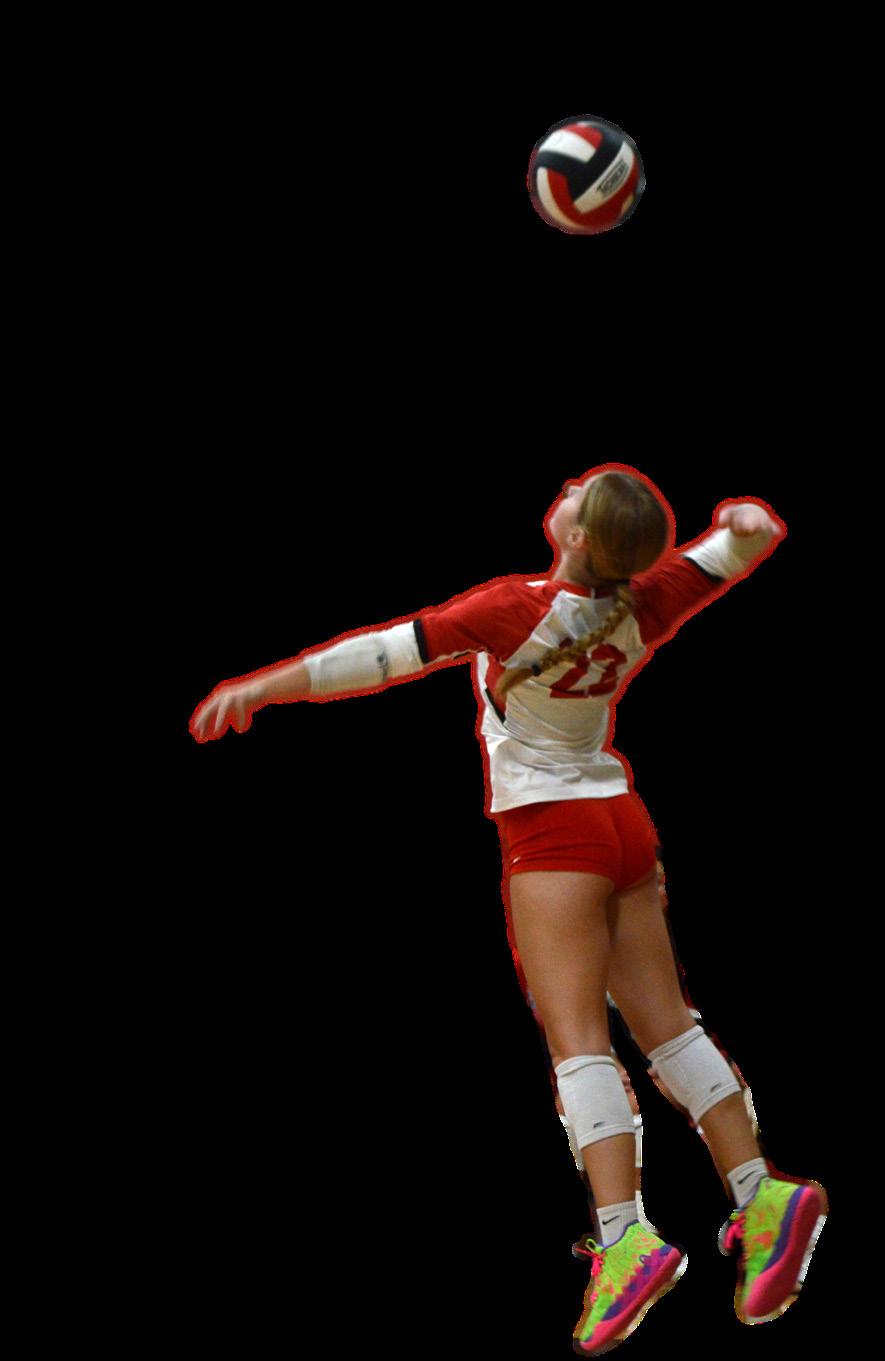
SERVED
Danielle McGillvary


Audrey Becker Sports Editor
With a record of 12-0, at press time the girls’ flag football team is ranked first in the state and fourth in the nation according to MaxPreps, making them the only undefeated team at Maine South this year.
Despite all of their success, the season hasn’t been without challenges. One big challenge for the team has been early practice times due to the high demand of the football field.
“The hardest part about the season is definitely waking up for the early morning practices,” junior quarterback and captain Aribella Spandiary said.
While 6 a.m. practice can serve as a challenge, players are optimistic that all of their efforts will pay off this season.
“The early morning practices will be so worth it if we end up winning state,” senior Lourdes Bottari-Tower said.
Team camaraderie has also played a part in making early morning practices more enjoyable.
“Once I’m there with my teammates, it’s a lot of fun," Spandiary said. “It’s also really nice having time for homework after school since we don’t have to stay
late like other sports do."
Last year, the flag football team fell just short of winning the conference title, losing to GBS 12-13. This year, the IHSA certified flag football as a sport. This caused the practice schedule to increase, making the team optimistic about winning a conference title.
“The major difference between this year and last year is that we’ve been preparing more with things like the summer camp and increasing the number of practices each week to five instead of two,” Coach Carlos Panizo said.
Another outcome of the decision to certify flag football as an official sport was an increase in competition from years past with more schools creating teams. Even with greater competition, the team is confident in their abilities to make a deep playoff run because of their experience from playing last year.
“Our varsity team this year has about 10 returning players, which gives us a huge advantage over other teams,” junior captain Amelia Fernandez said. “It’s nice that the majority of us have played this sport together before because it gives us


Fernandez and Spandiary are two of the team’s returning players making a significant impact on the team. As of Sept. 8, Spandiary is ranked first in Illinois for passing yards per game, and Fernandez is one of the team’s leaders in receiving yards.
The large number of dual-sport athletes on the team is also a major advantage.
“Almost everyone on varsity plays at least one other sport,” sophomore Emerson De La Cruz said. “Everyone having backgrounds in different sports has made it a lot easier to pick up football. Also, since everybody on the team is so athletic, it makes our team more versatile because everybody can play any position.”
I wanted to target girls who were in other sports to try out.”
The team has performed well thus far, but their toughest competition lies ahead of them in Taft, the fifth-ranked team in the country according to MaxPreps. (The results of the Sept. 26 were unavailable at press time.)

“Everyone having backgrounds in different sports has made it a lot easier to pick up football.”
-Emerson De La Cruz, ‘27
Around 60 girls tried out this year, but it’s expected for that number to increase in the coming years. On Oct. 3, the flag football team will have their youth night where the Park Ridge youth flag football teams come out to watch in the stadium. By getting the team exposure to future Maine South students, they hope to grow the sport.
Even though these athletes have only played flag football for one or two years, their previous athletic experience has allowed them to succeed in this sport.
“I noticed our strongest players last year were the ones who played in other sports,” Coach Panizo said. “So this year
As for the rest of the season, the team hopes to continue on as undefeated and make it to the state championship at the end of October.
“I am confident that the team will make it far in the playoffs,” Coach Panizo said.